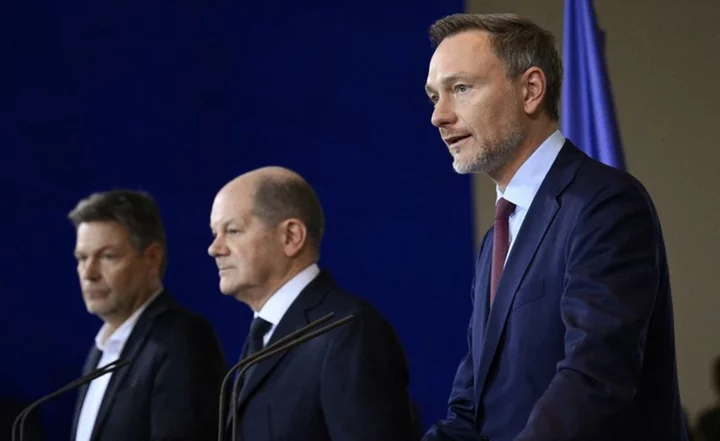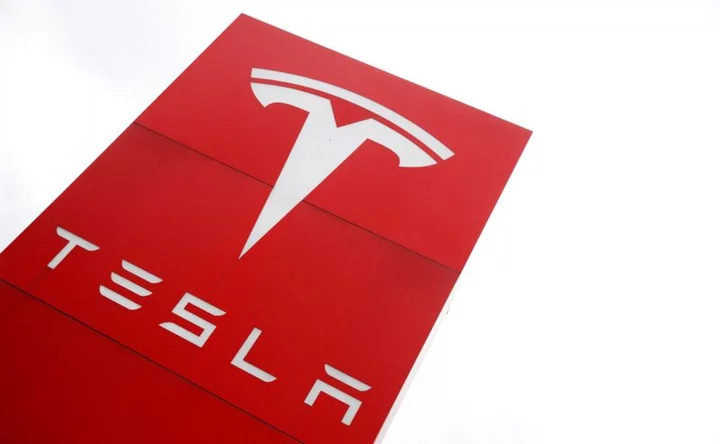By Christoph Steitz and Tom Käckenhoff
FRANKFURT/DUESSELDORF Germany's intensifying budget crisis is hitting Europe's top economy where it hurts most: its reputation as a reliable partner for industry, some of which now fears that Berlin may not stand by its pledges to fund green and other projects.
As well as tearing a 60 billion euro ($65 billion) hole in the government's 2024 spending plans, the constitutional court ruling raises wider questions about aid for big industrial projects that were supposed to be supported with public money.
These include plans by ArcelorMittal, the world's second-largest steelmaker, to spend 2.5 billion euros to decarbonise its German steel mills, efforts that depend on now-uncertain government support.
"We are disappointed and, above all, concerned, as we still lack funding decisions and thus a perspective for our industrial production in Germany," said Reiner Blaschek, who heads ArcelorMittal's German division.
He called the government's inability to come up with a quick fix for the budget impasse "grossly negligent", highlighting the potential consequences for Germany, which is already struggling to keep its place as a prime industrial location.
Chancellor Olaf Scholz in a video message on Friday said the government was reworking the 2024 budget swiftly and that all necessary decisions would be taken this year.
ArcelorMittal's German rival SHS Stahl-Holding-Saar has also not received a formal commitment from Berlin to support a 3.5 billion euro investment push to drastically cut CO2 emissions at its furnaces.
Chief Executive Stefan Rauber said a solution had to be found within days, not weeks, and that he needed a decision by the end of the year to make the programme happen.
"What we're seeing here is devastating for Germany as a business location globally. And the longer it goes the worse it will get," he said.
Besides the 6 billion euros of steel investments, other sectors potentially affected by the court ruling include 4 billion euros in the area of microelectronics and 20 billion euros for battery cell production, according to an economy ministry paper seen by Reuters.
It also covers so-called climate protection agreements that are supposed to help industry protect itself against power price swings, the paper said. Those have previously been estimated at 68 billion euros.
'NOT COMPETITIVE'
Germany has long been criticised for insufficient investment in key economic infrastructure - the IMF this year repeated a call for Berlin to create more fiscal room for investing in the country's future.
Critics say its constitutionally enshrined debt brake, which puts very strict limits on how much new debt it can take on, is a somewhat arbitrary political tool that restricts the space for those investments.
The court's decision to block the repurposing of unused funds from the pandemic for green investment has cast doubt over the fate of other off-budget funding vehicles and a cloud over future spending plans in 2024 and beyond.
The comments from industry reflect broad concern it will limit Germany's ability to stand by its funding commitments to major expansion projects including some by Intel, Taiwan's TSMC and Infineon.
Making matters worse, the budget turmoil creates a fresh layer of problems when Germany is already fighting for investment with locations in Asia and the United States, and faces the risk of big industrial players moving sites abroad.
The U.S. Inflation Reduction Act (IRA) has provided companies with clear regulatory frameworks, including in the nascent field of hydrogen, which is key for Germany's efforts to make its industry carbon neutral.
"If there's an impression ... that it is unsafe to walk this path with German companies ... then plant manufacturers will look to the IRA and other projects in the USA, simply because investment security is there," said Bernhard Osburg, CEO of Thyssenkrupp Steel Europe.
While there are concerns over what the budget hole means for projects in the short-term, fears are growing that it could weaken Germany's ability to co-sponsor the longer-term transformation of its industries.
Some worry that plans to lower power prices for industry, a key effort to keep chemicals heavyweights such as BASF and Wacker Chemie competitive, could be derailed, too.
"Important industries in Germany, such as chemicals or steel production, need economical energy prices," Oliver Blume, CEO of Europe's top carmaker Volkswagen, told Frankfurter Allgemeine Zeitung.
"We are currently not competitive on a global scale."
($1 = 0.9168 euros)
(Reporting by Christoph Steitz and Tom Kaeckenhoff; Additional reporting by Andreas Rinke; Editing by Catherine Evans)









